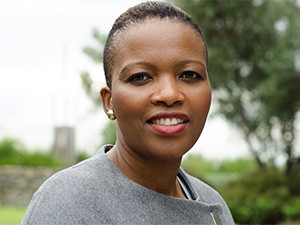
A group of data science practitioners have come together to introduce Africa Data Science Association (ADSA), a non-profit organisation which aims to develop and promote globally acceptable data science standard practices across the African continent.
According ADSA, the new governing body plans to establish a continent-wide network to address data science-related challenges in Africa and globally. Founders of the organisation are based in SA, Uganda, Nigeria, Kenya and other countries within the continent.
Thula Ngonyama, founding member of Africa Data Science Association and head of Information Management and Customer Insights for Personal and Business Banking, rest of Africa at Standard Bank, says ADSA is a professional body whose main mission is to be a catalyst in developing and promoting globally acceptable data science standard practices; leading collaboration, excellence and innovation for the advancement of the data science profession.
"ADSA plans to develop a data scientist capability framework, which will include a data science accreditation process associated with clear proficiency levels. It will also provide a platform for data scientists within the continent and globally, to connect and interact through a community of practice for data science in Africa.
"ADSA is a product of frustration on our part mainly because of the challenges faced by businesses in building capability in the field of data science. There is no standardised accreditation process for data scientists - most of the academic institutions do not have a data science junior degree and offer data science only at a post grad level. Most firms do not have a clearly defined career path for the role, nor is there clear remuneration associated with each proficiency level," explains Ngonyama.
Organisations do not have a clear understanding of the value data scientists could contribute to their business success. There is limited sharing of use case, and excellence is not rewarded in the field, she points out.
ADSA has also introduced the Africa Data Science Association excellence awards, where individuals or organisations are recognised for their effort in advancing data science in the African continent.
Simphiwe Phakathi, executive head: Data Quality Management at Standard Bank Group and board member of the Africa Data Science association, says the association plans on having chapters across the Africa continent. "Most of the board members have experience in working across Africa and this will help the association with context and relevance to establish local chapters - we are starting small and growing."
"ADSA is looking to develop a framework that help organisations understand what they need to do to develop data science capabilities and reduce barriers to entry into the market for individuals interested in the field," notes Phakathi. "We want to make it easy for organisations to find people who have the aptitude and the ability in data science.
Share